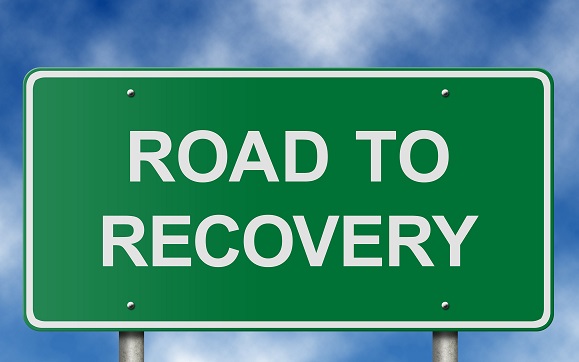For those who suffer from drug addictions, life is full of challenges and concerns that are upsetting and frustrating. Wondering where the next fix will come from, wishing the feelings of pain would go away permanently, feeling the guilt and shame of using, and ruining relationships can be distressing. Desiring change is the easy part. It is usually following through with the commitment to stop using that creates the most problems. Addiction isn’t something that happened overnight, and recovery takes time too. It isn’t an easy road to detox and avoid substances altogether. Learning the tools of addiction recovery can help prepare an individual for a more successful journey of moving past substance abuse.
The First Rule
Addiction recovery requires dramatic life changes. There needs to be a deliberate set of new habits in a place to avoid future temptations to use. If the addict doesn’t create a new environment, all of the things that had them feeling trapped before will slowly catch up to them. Not everything about an addict’s life will need to change, but there are priority areas that need to be addressed if they are going to keep clean. The longer they struggle to retain their old life, the less successful their recovery will be. These are the more common areas to consider.
High-Risk Situations
While there are different pressures that cause an addict to use or crave a substance, the most common high-risk situations can be spelled through the acronym HALT. It stands for hungry, angry, lonely, and tired. At the end of the day, you will probably be hungry from a long day at work or you may be angry because of things your coworkers did. Feelings of isolation or loneliness can take over if they are sitting at home alone or they are exhausted and are just looking for a way to relax. The strongest cravings for a substance occur at the end of the day, and the people, places, and things that encourage them to use (whether friends or negative situations) tend to come to their mind when they are in a position of high-risk.
By being aware of what these tricky situations are, the addict won’t be as caught off guard when they show up. This way, they are more prepared to address cravings through preventative measures. Taking better care of themselves is one place to start. Eating a healthy lunch and snacks throughout the workday can keep them from feeling so hungry toward the end of the day. They can also join a recovery group to minimize feelings of loneliness or isolation, and they can always reach out to friends or family in a moment of weakness. Developing coping strategies can help them manage anger. Working on creating a sleep routine that gives them the best rest possible is also key to success. Avoiding situations also means staying away from people, places, and things that would encourage addicts to use. The little changes they make can add up to a successful recovery. This is why it is more beneficial to create a new life than adjust the old one to new habits.
Recovering addicts should also create a list of personal high-risk situations to watch for. Addiction can sneak up on people when they are least prepared for it. It is also possible that they won’t recognize a tempting occasion until they are in the middle of it. Recovering addicts need to develop a list according to what they struggle with personally and learn to look for these triggers. Having a trusted friend or family look over the list and add any other areas that they may see can be beneficial. It helps to keep the list handy and refer back to it as a daily reminder.
Managing Depression and Anxiety
There are numerous reasons behind substance abuse. People desire to relax, to escape, or to reward themselves. Relieving the stress of life is an umbrella category for these areas, and the road to successful recovery deals with these underlying causes of substance dependence. While there are many ways of addressing these areas, by seeking addiction and depression counseling, an addict is able to address two different areas of substance abuse that create overlap and exacerbated symptoms in both areas. Depression over life’s circumstances can be a reason why an individual will turn to drugs, but the after-effects of guilt or need for another fix can create depression when a user isn’t able to resolve the feelings. Although the desires for relaxation, reward, and escape are natural coping skills, the power of habit-whether positive or negative- can have a significant impact on the ability to live a healthy and productive life. Negative coping skills push certain individuals toward substance abuse, but reinforcing positive habits and skills can help replace the negatives that are encouraging the wrong response to stresses in life.
Beating addiction comes through a motivated commitment to changing mindsets, habits, and lifestyles. Successful recovery is all about how well someone employs coping skills or habits to deal with the stresses and negative thoughts that will come. Addicts don’t have to beat their substance abuse on their own. Friends, family and support groups can be there to help. Recovery centers can also provide access to professional medical care or service providers.

Leave a Reply